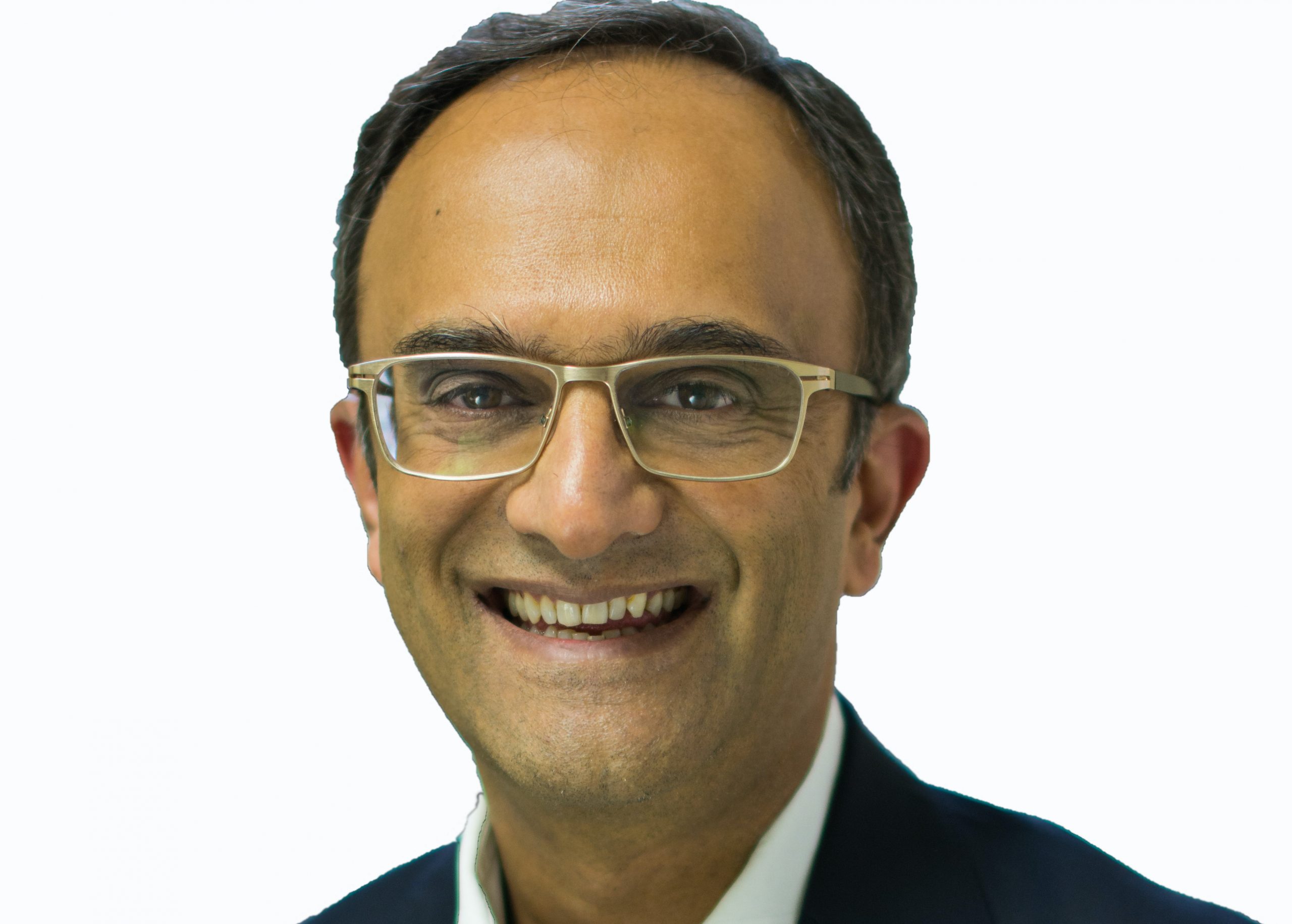Can you tell us a little bit about your life and the key moments that brought you to where you are today?
I was born in Kenya and grew up in England where my school years, at an English public school noted for grooming top rugby players, cricketers and rowers were particularly formative for the person I have become today. Learning to play rugby in mid-winter showed me that my lighter frame gave me speed on the pitch that was complementary to the strength of the giants around me; those brutal afternoons on the battle-pitch nurtured a brave, fighting spirit together with total respect for the power of teamwork. In the classroom, I loved both the sciences and the arts but chose to pursue a degree in Engineering; this gave me a discipline that has become part of my personal DNA as I firmly believe that the finest products combine beautiful design with precision engineering at their core.
Following graduation, I worked as an embedded systems engineer on radar systems for fighter aircraft and realised within a few years that my calling was not to be in corporate life as I found the bureaucratic environment to be stifling. Still, in my twenties, I decided to embark on an entrepreneurial journey as a founder of a startup that was focused on providing technology products, management consultancy and executive search into the London and New York financial markets. My first business venture was the equivalent of a practical MBA (disclaimer: although I was a part of the London Business School Enterprise 100, I do not have an MBA) and I adored every single minute of the experience. Having spent three decades building brave ventures, my greatest learning is that creating early-stage companies is like a team sport, requiring a fundamental understanding of people and their behaviours; my recipe for success is based upon building high-performance, high-stamina teams that can lead, inspire and forge long-standing relationships. My greatest inspirer was my beloved late father who instilled in me a passion for cars, music, tailored clothes, collecting memorabilia and of course, business.
The mantra that best defines my life is ‘Simplicity is the ultimate sophistication’.
What have you learned from the Cryptocurrency and Blockchain industries?
I first realised that blockchain technology would become relevant for the future of the internet in 2014. In 2015 I started a venture builder which launched several deep tech ventures. This included Zilliqa, the high throughput, low-cost layer 1 blockchain. I have learned that the blockchain-based world, and my vision for it, is still in the nascent stage akin to the internet in 1993. In these early stages, it has felt like a solution seeking a problem with too many pilot projects now lying in the graveyard.
Projects have raised capital through token launches but have delivered little product and have survived through speculation on their tokens and hype-driven marketing. On the positive side of this innovation, I believe that token launches offer a paradigm shift in how entrepreneurs can raise non-dilutive capital and then raise long term growth capital through long duration institutional stakeholders. A good balance between the equity and token-based business models is however still rare.
If the space is to grow and power web 3.0, layer 1 blockchains need to be reliable and robust, useability needs to increase for mainstream adoption and the nurture of communities who can bring support and ideas to projects is vital.
What is web3 and why is it so important that there is now a bridge for technology firms to cross from web2 to web3?
Web 1.0 laid the grounds for the information economy, made the internet more usable and gave us the ability to ‘read’.
Web 2.0 led to the creation of the ‘frontend’ platform economy and allowed apps to provide ‘read and write’ capabilities.
Web 3.0 is the ‘backend’ token economy is powered by smart contracts and the blockchain with applications connected to users’ wallets. Applications in the Web 2.0 world rely on some form of a centralised database to deliver data and help to enable functionality. In Web 3.0 applications make use of a decentralised blockchain. With blockchain, the basic idea is that we replace a central authority with consensus whereby we allow anyone to participate in the verification of transactions and be compensated through a network token.
Emerging governance within the blockchain and Web 3.0 community is the concept of a Decentralised Autonomous Organisation (DAO). Instead of having a centralised authority that governs the operations of a platform, by using a DAO, Web 3.0 technologies and communities provide a form of self-governance.
The Web 3.0 economy fundamentally works with cryptocurrencies. The ability to pay for goods and services with a decentralised form of payment is enabled across Web 3.0 with the use of tokens, which are all built and enabled on top of blockchain technology.
Web 3.0 enables a growing number of different types of new applications and services to power the new digital economy including Non Fungible Tokens (NFTs), decentralised finance (DeFi), decentralised applications (dApps) and bridges that enable interoperability between different blockchain platforms.
Why is the metaverse such a big draw and what are your hopes for it?
The metaverse is The Next Internet. Combining web 3.0 with the power of the metaverse will bring monumental change to how we work, play, socialise, watch, and learn. The concept of the metaverse is not new and we can trace its origins back to the 1992 science fiction novel Snow Crash which was authored by Neal Stephenson and is a must-read. In fact, gamers have been interacting with each other on gaming and social gaming platforms within animated worlds where users represent themselves through an avatar.
The metaverse is an always-on, 3-dimensional virtual world for immersive multi-sensory experiences where users and their avatars can explore a vast number of experiences in real-time irrespective of their physical location.
Goldman Sachs predicts that the metaverse is an $8 trillion opportunity in terms of monetisation and revenue generation and I firmly believe in the scale of the marketplace, give or take a trillion.
Although I am certain that the metaverse and web 3.0 will take time to mature and gain mainstream traction, there is already evidence of major brands such as Nike and Gucci starting to experiment with the sale of NFTs in collaboration with major social gaming platforms.
My hope is that we see exciting new companies being born within the metaverse that will become the new unicorns within the next 5 years and I sincerely hope that Metapolis is in this group.
What excites you most about web3, the metaverse and the potential of Metapolis?
Firstly, I must tell you that we must stop speaking about metaverses; this is not a plural space in my opinion. Different players will build different venues within one single metaverse (note: singular) as individuals and companies build the equivalent of immersive websites which utilise the power of web 3.0 infrastructure. At Metaverse, we call these venues ‘cities and domes’ and are working with emerging and established brands to provide a service whereby we build these venues with cutting-edge technology, beautiful design and useable back-end services that are enabled by the underlying blockchain. Our business model is best described as Metaverse-as-a-Service or MaaS.
I am currently working with luxury brands across the fashion, automobile, wine and jewellery sectors to experiment with venues designed by Metapolis through the creation of multi-sensory experiences hosted within the metaverse where we can bridge between digital and physical experiences for the consumer. Our proprietary technology allows for the creation of life-like 3-dimensional spaces where a user’s avatar can interact with other avatars, across the globe, in real-time to experience events that showcase a brand’s products in an engaging way that is not possible in Web 2.0.
Unlike most metaverse companies, we are not merely selling digital real estate. Rather we are building an interoperable standard for metaverse onboarding, the avatar linked to identity, MaaS for ease of onboarding for brands to not be left behind with all the tech knowledge required.
My vision, which has evolved in a linear fashion, is for a world where I can join up the ventures which I have created in order to create an entire ecosystem of industries that also work with other ecosystems openly and transparently.
What are the most important lessons your career and work have taught you?
I do hope to write a book on this specific question at some point in the future when I eventually move down a gear or two. The most important lesson for me is that to be successful in most professions and especially in entrepreneurship requires a combination of curiosity, drive, bravery, efficiency, resilience, and emotional intelligence.
Perhaps the most important lesson, and which I apply every single day in my work, is that EQ trumps IQ. Every single time.
I pay a huge amount of attention to the recruitment process, closely followed by the retention and development processes. I urge my colleagues across the ventures that I have built to select high-performance people that possess the highest level of capability for a role (skill) together with behaviours that fit the culture of a team (behaviour); when we compromise on any of these components, we often create toxicity and mediocrity which are my least favourite words.
Secondly, I have learned that output is a more important measure of high-performance individuals and teams than input. I have never been impressed by individuals that try and impress me by the number of hours that they spend at work. I like working with people that are action leaders and in fact, this is a title we use at Metapolis, to describe those that ‘do’ and not just ‘talk’.
Finally, I adore humility in any human being and not just in the workplace; one’s success should never affect this quality.
In the words of the legendary soul band Sounds of Blackness, ‘be optimistic’ (1991).
What do you hope your legacy to be?
My greatest wish is to create long-duration companies that can bring change to people's lives across the planet, bring delightful experiences to the masses and that create world-class future entrepreneurs that are brave enough to launch their own ventures and that bring delight to the masses.
I do hope that one day I can truly be thought of as a blockchain-age industrialist who brought the very best people and infrastructure together to create amazing experiences and products in the areas that have shaped me.
About Max Kantelia
Max is a serial entrepreneur who has been described as a ‘new age industrialist’ with over 25 years of experience in the startup and rev-up of fast-growth companies in London, New York, and Singapore. He has been focused on building an entire blockchain-based ecosystem since 2015 which started with the launch of Zilliqa, the Layer 1 protocol, one of the most advanced technology platforms for decentralised applications offering fast transaction processing, low fees, high security and very low energy consumption.
Since the launch of Zilliqa, Max has been focused on investing in and guiding founders who can bring the benefits of Web 3.0 and blockchain technology to vertical markets with large user bases. In 2021, he co-founded XCAD; a hyper-growth social media venture which allows content creators to create NFTs to get better engagement with their followers and TokenIITraxx; a ground-breaking new web3 music venture.
In 2021, Max helped to launch Metapolis, the first Metaverse as a Service platform which can help established and rising brands to rapidly build a presence in the metaverse to create hybrid digital and physical products which can provide access to new markets.
With a burning drive to prove that blockchain technology can become a weapon against illicit trade in the luxury goods marketplace and that the metaverse, as powered by Metapolis, will become The Next Internet, Max is now exploring the application of these technologies together with brands across the fashion, automobile, jewellery, and entertainment industries.
Max is a highly experienced public speaker and regularly speaks about blockchain at family offices and luxury industry events. He holds a degree in Engineering Science and was part of the London Business School Enterprise 100.
He is an avid collector and enjoys fine wine, jazz, and all things automotive.
LinkedIn:linkedin.com/in/maxkantelia













